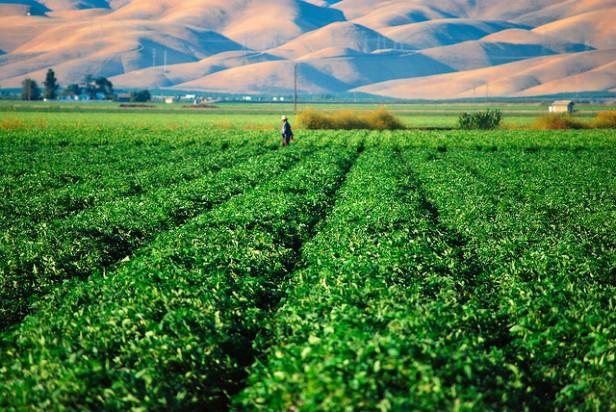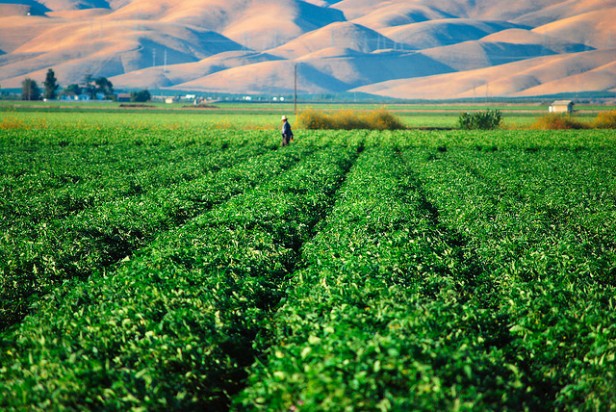 A Central Valley field.Photo: calwestThe Los Angeles Times details a brewing skirmish over agricultural runoff being fought in California’s Central Valley. At issue are proposed regulations that would for the first time force farmers to address fertilizer and pesticide runoff from their fields. A group of environmental organizations is pushing for the regulations, as the L.A. Times reports:
A Central Valley field.Photo: calwestThe Los Angeles Times details a brewing skirmish over agricultural runoff being fought in California’s Central Valley. At issue are proposed regulations that would for the first time force farmers to address fertilizer and pesticide runoff from their fields. A group of environmental organizations is pushing for the regulations, as the L.A. Times reports:
“Runoff from irrigated agriculture is the largest source of pollution to Central Valley waterways and the Delta,” said the Sierra Club, the Center for Biological Diversity, the California Sportfishing Protection Alliance and more than 70 other state and local groups in a joint statement. “This pollution is one of the principal causes of the collapse of Central Valley fisheries.
“Inexplicably, irrigated agriculture remains exempt from requirements to monitor discharges and identify measures to reduce pollution,” the groups said, adding that such rules have “long been applicable to every other segment of society, from municipalities to industry to mom and pop businesses.”
This isn’t an important story simply because of the groundwater issue, however. It’s true that it would be a landmark decision if the new regulations limiting runoff were to stand. What makes it important is the nature of the two sides’ arguments. On the one side, you have environmentalists detailing the hazard to the health of humans as well as wildlife. On the other, you have “more than a dozen growers of rice, hay, grain and other crops in the Sacramento Valley” declaring that they are “‘adamantly opposed’ to a requirement for electronic reports on their discharges. ‘Being a small diversified farmer has become increasingly difficult with regulatory burdens exploding over these last few years.'”
That’s what they call a non-denial denial. There is clearly not a dispute over the underlying facts — the farm groups didn’t even bother denying them. This is the increasingly universal strategy of Big Ag — reduce safety or environmental issues to an attack on the viability of agriculture, facts be damned. They suggest that we have to accept — if we want our cheap, mass-produced food — that there will be collateral damage, in this case to the idea of clean water. It appears to be of little concern that much of the Central Valley population is made up of low-income Latino farmworkers.
Of course, this issue isn’t limited to California’s Central Valley. The struggle over runoff is playing out across the country, from the Chesapeake Bay to the Midwest to the Gulf states. And with anti-regulatory fervor, along with food prices, on the rise, Big Ag’s desire to be free from “regulatory burdens” may be that much closer to reality.



